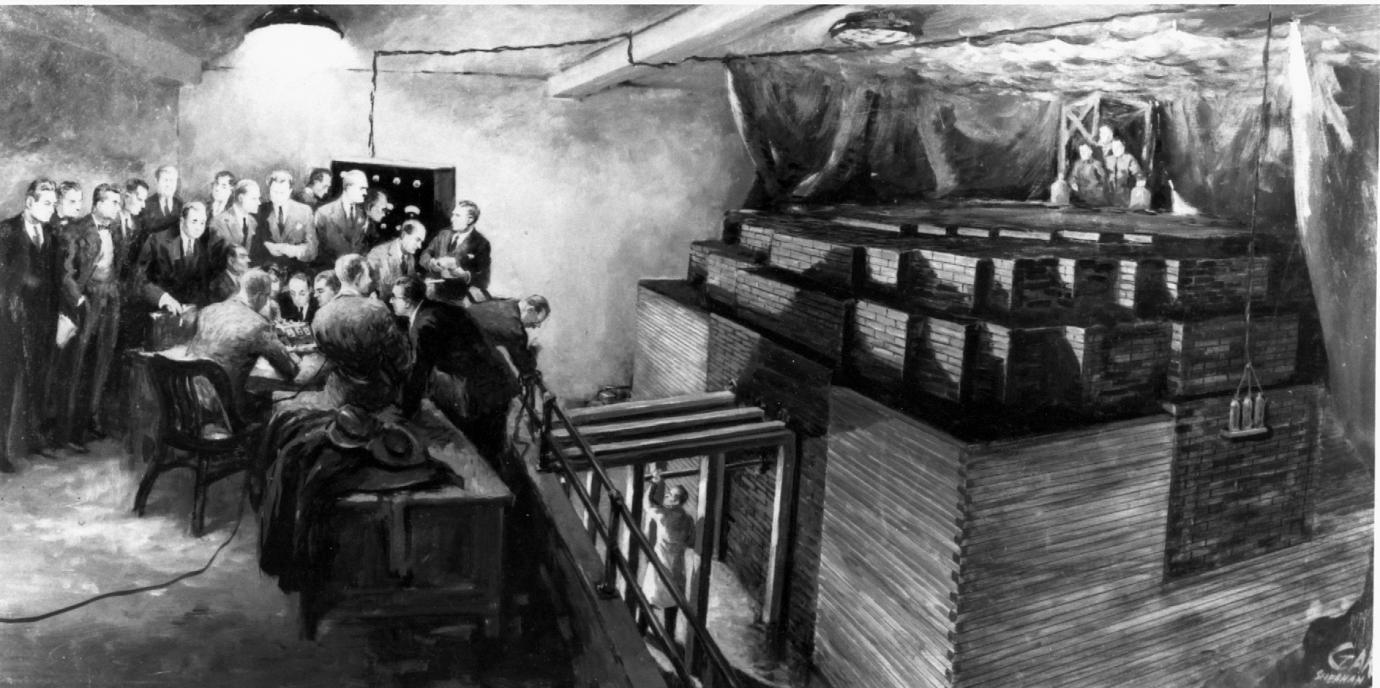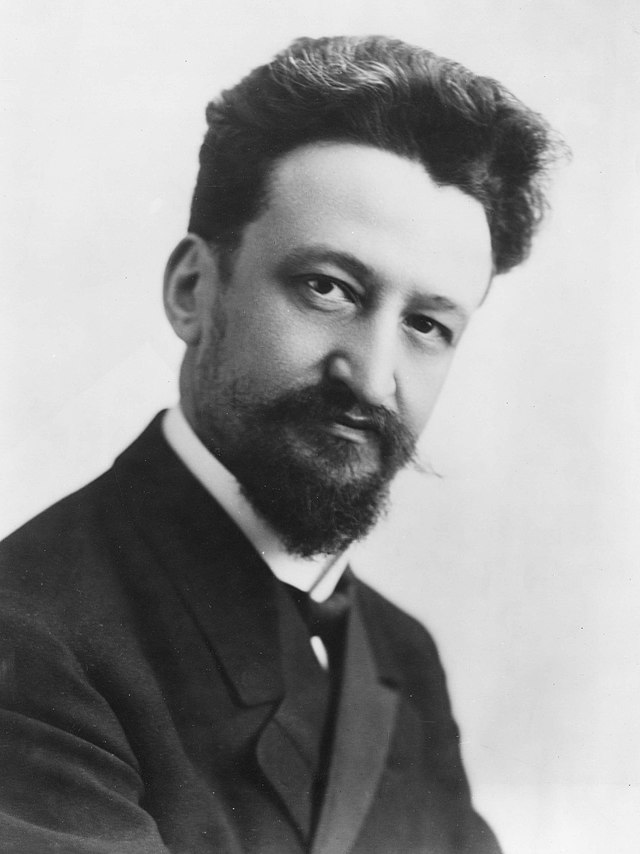- Details

Did you know the world’s first sustained nuclear reaction was achieved on a squash court beneath Stagg Field at the University of Chicago? The moment sparked the controversial age of nuclear power and also nuclear weapons.
A key moment in the Manhattan Project, the experiment in Chicago was designed to prove a scalable, sustained nuclear reaction was possible. With hundreds of people working on the project the reactor ultimately took two weeks to construct and on Dec. 2, 1942, the first nuclear self-sustaining chain reaction was achieved in 28 minutes.
The 49 scientists present at the reaction celebrated with Chianti wine drank from paper cups. Following the reaction, the reactor was transported to a forest preserve outside Chicago and disassembled. The scientists and equipment involved in the project were reorganized to pursue peaceful uses of atomic energy, becoming the nation’s first national lab, the Argonne National Laboratory.
Nuclear fission went on to be used in energy, weapons systems, chemistry and biological studies and many breakthrough medicinal applications. The use of nuclear fission in all of these settings presented world altering changes to how humans interact with the world.
- Details

As summer is officially in full swing, a favorite past time of many is grabbing an ice cream cone from their local ice cream store. Illinois, however, has a few unique flavors of its own! As a culinary leader, over the last few decades numerous types of ice cream flavors have been concocted right here in this state that you most likely will not find anywhere else. To celebrate National Ice Cream month this July, we are kicking off our own “most unique flavors” list.
- Details

Innovation, speed and a little Midwestern ingenuity were the winning qualities behind this year’s Makers Madness champion. The title of “Coolest Thing Made in Illinois” went to MTH Pump. This small, Plano-based manufacturer created a game-changing pump that provides rapid, reliable water access for aerial firefighting teams.
This new pump is designed to refill in just 30 seconds, down from the usual minute or more, and could significantly increase the speed and effectiveness of aerial firefighting. This Illinois-made invention could make a lifesaving difference in emergencies where every second matters.
Now in its fifth year, Makers Madness is hosted by the Illinois Manufacturers’ Association and celebrates the state’s long-standing legacy of manufacturing excellence. The statewide tournament calls on the public to vote for their favorite product made in Illinois. Past winners have included industry giants like Caterpillar and Rivian—making this year’s win by a small team from MTH Pump all the more impressive.
This year’s contest reminds us that big ideas don’t always come from big companies in Illinois and that small teams can make a major impact.
- Details

Did you know that Illinois is home to the first blood bank in the world?
Dr. Bernard Fantus was known for his work to improve and modernize medicine. As patients who needed a blood transfusion had to scramble to find a donor for a person-to-person transfusion, he knew there had to be a better way.
- Details
 “If nobody else is going to invent a dishwashing machine, I’ll do it myself,” were the renowned words of an Illinois woman whose invention impacted domestic living for generations across the U.S. Josephine Cochran is the original inventor of the first practical dishwasher and established the Garis-Cochran Dish-Washing Company in 1897 to manufacture the new, innovative device. After moving to Illinois from Ohio, Cochran built her prototype in a shed behind her house in Shelbyville. It could fit plates, cups and saucers inside a set of wire compartments and pumped hot soapy water onto the dishes, avoiding common issues like chipping and unwanted wear.
“If nobody else is going to invent a dishwashing machine, I’ll do it myself,” were the renowned words of an Illinois woman whose invention impacted domestic living for generations across the U.S. Josephine Cochran is the original inventor of the first practical dishwasher and established the Garis-Cochran Dish-Washing Company in 1897 to manufacture the new, innovative device. After moving to Illinois from Ohio, Cochran built her prototype in a shed behind her house in Shelbyville. It could fit plates, cups and saucers inside a set of wire compartments and pumped hot soapy water onto the dishes, avoiding common issues like chipping and unwanted wear.
In 1886, Cochran secured a patent for her dishwasher design with the assistance of mechanic George Butters. Her design featured a motor, water wheel, a boiler to heat the water, and a rack system to hold the dishes neatly in place as they were sprayed with the soapy water. While Cochran’s dishwasher was the first to be commercialized, she initially sold them to hotels and restaurants to demonstrate its value in multiple settings. The large-size model of the dishwasher could wash and dry 240 dishes in two minutes. The success of her dishwasher enticed hospitals and colleges to purchase the machine for its effortless sanitizing effects.
Cochran’s dishwasher gained support and recognition from businesses, hospitals and schools, but it was not until the 1950s when dishwashers became popular and successful in American households. She was posthumously inducted into the Inventors Hall of Fame in 2006. Thanks to her persistence in seeing her invention succeed, Cochran formed a legacy for herself and changed the domestic experience for all Americans.



